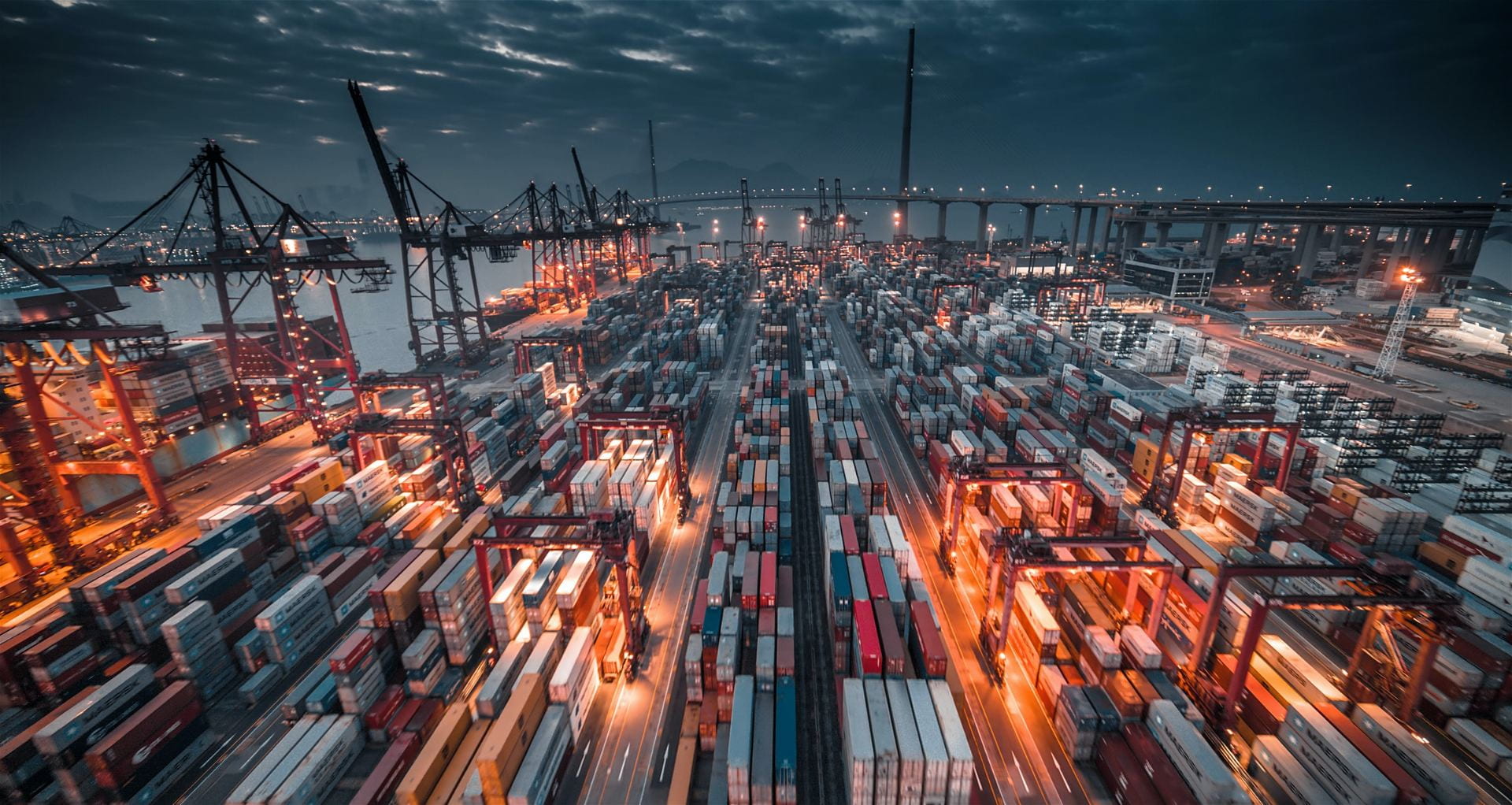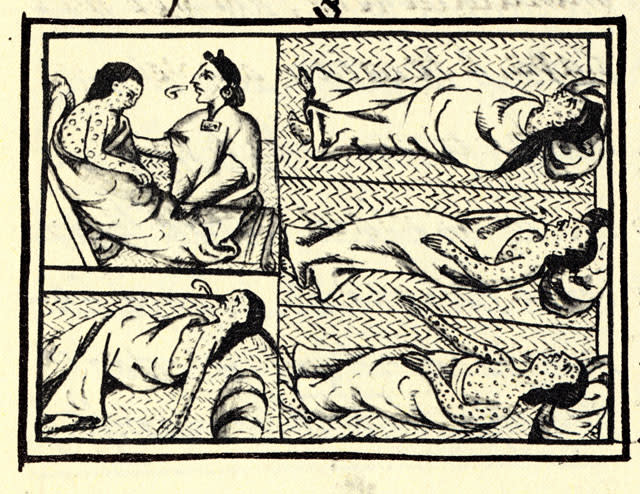
Will COVID-19 End Globalisation?
A spectre is haunting the world but it isn’t COVID-19, it’s the idea that the pandemic could lead to the end of globalisation. In an article originally published on the ES Global website as El coronavirus pondrá fin a la globalización?, Dr Ángel Alcalde, from SHAPS and Dr Jose M. Escribano, Universidad Pablo de Olavide, explore this possibility.
A spectre is haunting the world – but it’s not COVID-19. It is the idea of the end of globalisation. The great catastrophes of history have always stimulated human imagination, but the current situation has exacerbated the levels of speculation, transforming prestigious intellectuals into fortune-tellers. A recent article by British political philosopher John Gray in The New Statesman is a case in point. In this piece, Gray not only considers the “era of peak globalization” over, he also predicts that this “Hobbesian test” will make governments fall and provoke a return to farming and food-production. COVID-19, Gray says, will make “people travel less”. The European Union will decline, “like the Holy Roman Empire”, dominated by the extreme right and under the growing influence of Russia. According to Gray, the world order will fall apart. ‘Deglobalisation’, depicted by Gray as the offspring of globalisation, is taken for granted here; it is already underway – or so we are told. There is no choice but to adapt to this future, for which Western countries are ill-prepared, while Asian countries, once deemed ‘backward’, will thrive.

However, these predictions about an emerging new historical era are not based on evidence or precedents. One of the basic tenets of science, that arguments need to be based on facts, is often overlooked these days. Superficial glances at history enable catastrophic or triumphalist prophecies about the fate of globalisation. Yet such opinions are not new. Historians will recall Francis Fukuyama’s prediction about the end of history in 1989 – an optimistic prophecy, loaded with a considerable ideological baggage, about the allegedly unavoidable global triumph of capitalism and liberal democracy. Now we are not – we are told – witnessing the end of history, but rather its ‘turning point’. This is the dawn of a deglobalised world.
Predictions about the future of globalisation should be based on historians’ explanations, debates and opinions about it. What historians call globalisation transcends the popular 1990s notion of a globally integrated capitalist system marked by relationships of domination between centre and periphery. Globalisation is far more complex: it is not simply an economic and political phenomenon, but also a social, cultural and even environmental one.

In fact, globalisation did not commence with neoliberalism in the 1980s. It started far earlier. There is an intense debate among historians about when globalisation began. For many, it started in the late nineteenth century, when technologies such as the telegraph, the railway or the steamship built an interconnected world, making markets converge. In another economic interpretation, American sociologist Immanuel Wallerstein dated the onset of globalisation in the sixteenth century when European expansion connected the different parts of the world in a first economic system divided between centres and peripheries.
Others have called these interpretations into question. American sociologist Janet Abu-Lughod has argued that we can trace global economic linkages back to the thirteenth century. And others have detected similar relations dating back to the year 1000 [CE]; or even 3000 BCE.
The debate about the onset of globalisation is not innocent. If we take the sixteenth century as the starting point, we are presenting globalisation as the heroic accomplishment of Europeans who explored the Oceans. Tracing its beginning back to the nineteenth century depicts globalisation as a by-product of the expansion of the British Empire.
But participants in this debate have also challenged Euro-centric biases. Professors Dennis Flynn and Arturo Giraldez have situated the beginning of globalisation in the last quarter of the sixteenth century, with the opening of the trans-Pacific route connecting the Spanish colonies of the Americas to the Far East. This perspective allows them to highlight the crucial role of the Chinese economy in commercial integration due to its enormous demand for American silver.
More recently, observing the cultural hybridisations in the Iberian Empires of the sixteenth and seventeenth centuries has allowed scholars to highlight the role of Mexican, Brazilian, African and Indian actors in cultural globalisation. And in the twentieth century, characterised by the rivalry between capitalism and socialism, the Soviet Union led an alternative construct described as ‘red globalisation’ that challenged the world liberal economy. Maybe those who envision the imminent end of globalisation should make clear that, by doing so, they are appropriating the phenomenon by privileging some actors over others. It would be more honest to clarify that they are referring to the hypothetical end of a phase of global interconnectedness that has benefited some Western countries over the rest.

The relationship between disaster and globalisation is far more complex than what recent commentators have acknowledged. To demonstrate this, let’s look at the impact of momentous events such the bubonic plague, the incorporation of America, and the World Wars, on the globalisation process. The consequences of these catastrophes disprove the assertions of those who prophesise globalisation’s end.
The bubonic plague decimated the European population in the fourteenth century. Interestingly, several witnesses attributed this epidemic to the ‘globalisation’ of the day. For example, historian Ibn al Wardi (1291–1349[CE]), an eyewitness of the plague which devastated Aleppo (in present day Syria), pointed to the Far East as the origin of the disease, which had travelled along the Silk Roads. The demographic losses caused by this pandemic far outnumbered the current ones.
Even though the commercial connections with the Far East were perceived as the cause of the disaster, the peoples of the fourteenth century were not willing to renounce the pleasures that this early globalisation had provided. Moreover, the Europeans’ longing for the Far East set the basis for an unprecedented acceleration of globalisation, when the Americas were incorporated into the commercial and biological exchanges with the Old World. The effect of the arrival of a host of conquistadores to the New World was devastating, as they carried with them a biological baggage of pathogens that resulted from a global epidemiological history until that date.

The subsequent demographic disaster, in turn, accelerated the biological globalisation which shaped the current world. The huge demographic losses were replaced with a massive inflow of slaves from sub-Saharan Africa. The access to the American silver mines dynamised the trade of Asiatic manufactures and triggered a series of regional commercial exchanges of, for instance, textiles and spices from the Indian Ocean. But the most important aspect to bear in mind is that all these side effects (either positive or negative) were the result of the firm determination of a wide array of actors to continue benefiting (no matter what the cost) from the opportunities provided by an increasingly interconnected world.
Only if we adopt a narrowly economic view of globalisation, which exclusively focuses on its economic dimension, it is possible to consider that catastrophes, conflicts and crises may ‘interrupt’ or ‘revert’ the phenomenon. This view produces a unidimensional and linear vision of globalisation at odds with its reality.
While the Great War did divide Europe, disrupting international trade and migration, it was a truly globalising event. Events on the western front had immediate effects in the most remote places of Asia and Africa where colonial empires clashed.
This major conflict provoked unprecedented global interactions: African soldiers were deployed in the European battlefields; tens of thousands of Chinese workers were sent to the Old Continent to contribute to the Allies’ total war effort. Certain phenomena of human mobility were a direct result of the war, such as the global circulation of soldiers, accelerated in World War II; millions of men (and to a lesser extent women) came to know new regions of the planet and established contact with other cultures.

In so doing, they became conscious of their shared human condition in a more interdependent world. Military technological developments also contributed to the subsequent acceleration of global interdependence. The American B-29 flying fortresses, for instance, inspired the development of the transcontinental airplanes for the next era of peace.
During the interwar period, the rise of nationalism and fascism implied a return to economic protectionism and collapse of international trade. However, this did not mean an interruption of globalisation. New socioeconomic models such as that of authoritarian corporativism also circulated globally. Ultra-nationalism did not mean less global interconnection – it only meant that interrelations became more conflict-prone, violent and dangerous.

This enhanced violence provoked, in turn, dramatic population movements at a global scale. At the same time, humanitarian action also led to an increase of international activity through both governmental organisations such as the United Nations, and non-governmental organisations. In fact the twentieth century was ‘a century of NGOs’. The geopolitical division of the Cold War also implied intense global interaction motivated by the threat of nuclear war and by the universalist projects of the US and the USSR.
History demonstrates the dynamism and resilience of global connections despite the very catastrophes that globalisation provoked. In the light of past experiences, it would be risky to predict deep transformations or the renunciation of interconnection and interdependence. The COVID-19 pandemic does not mean the end of globalisation; it doesn’t even mean the beginning of deglobalisation. One thing is certain: global interdependence will continue to be a defining feature of our time.
A shortened, edited version of this article was published on Pursuit.
Feature Image: Fourtheenth-century atlas of the world, ‘The Catalan Atlas’, attributed to Abraham Cresques, 1375. Bibliothèque nationale de France via Wikimedia Commons